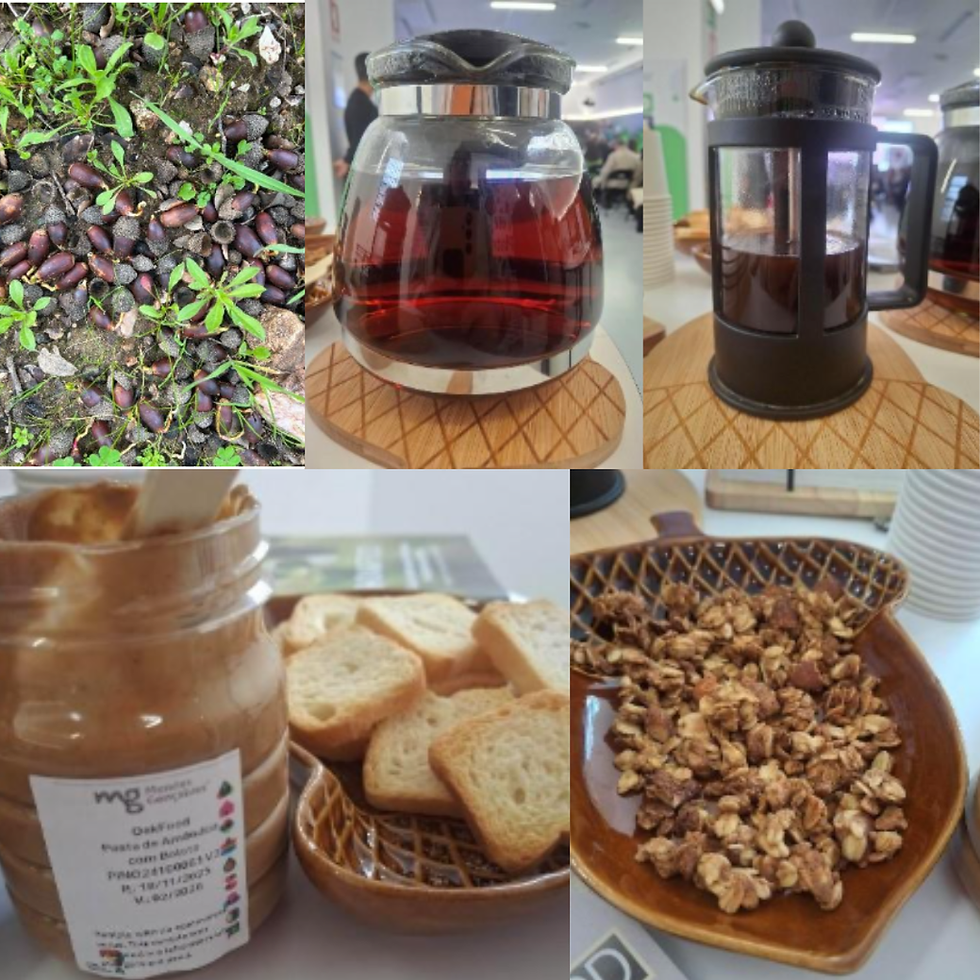Acorn and Ecosystem Services
- OakFood

- Jun 17, 2025
- 2 min read
The acorn, the fruit of trees such as the cork oak, holm oak, and common oak, is an essential component of Mediterranean ecosystems, especially the montado landscape. In addition to its ecological and cultural value, the acorn is directly linked to the provision of multiple ecosystem services (FONSECA et al., 2018).
From a provisioning perspective, the acorn is a crucial food source for various wild and domestic species, including the Iberian pig. It is also gaining relevance in human nutrition, through products such as flour, coffee, and traditional pastries, revealing sustainable potential for economic valorization (TERESO et al., 2011; MONTEIRO et al., 2023).
In terms of regulation, these trees play a vital role in carbon sequestration, erosion control, water infiltration into the soil, and microclimate regulation. They actively contribute to combating desertification and enhancing the resilience of rural areas to climate change (BENTO, 2020; FONSECA et al., 2018).
Culturally, the acorn represents a rural heritage of inestimable value. It is present in food identity, traditional agricultural practices, and landscapes that define the region and attract sustainable tourism (TERESO et al., 2011).
As a supporting service, the acorn promotes biodiversity by feeding numerous species and supporting food webs. The life cycle of the trees that produce it also enriches the soil, supporting the ecological balance of ecosystems (FONSECA, 2004).
Promoting the use and valorization of the acorn—while respecting nature’s rhythms—is a way to strengthen the connection between production, conservation, and identity: a solid path toward sustainability.

BENTO, I. Valorization of High Nature Value Systems: The Potential of Acorns from the Montado. Master's dissertation in Ecology and Environmental Management, University of Lisbon, Faculty of Sciences, Department of Animal Biology, 2020.
FONSECA, A. The Montado in Alentejo (15th to 18th Century). Edições Colibri, Portugal, 2004.
FONSECA, A.; THEMUDO-BARATA, F. Use of substitute food sources in the montados of Alentejo during the second and third quartiles of the 20th century. Revista História e Economia, São Paulo/Lisbon, vol. 21, 2018.
MONTEIRO, E. R.; FONSECA, A. M.; SENDIM, A. C.; VASCONCELOS, A. C.; RIBEIRO, V. S. Valorization of acorns for human consumption in Portugal. Acta Portuguesa de Nutrição, 35, 42–46, 2023.
TERESO, J. P.; REGO, P. R.; SILVA, R. A. The exploitation of wild food resources and their role in the economic and social dynamics of agricultural communities from prehistory to the Roman period. In: Northern Portugal Forests – History, Ecology and Management Challenges, 2011.




Comments